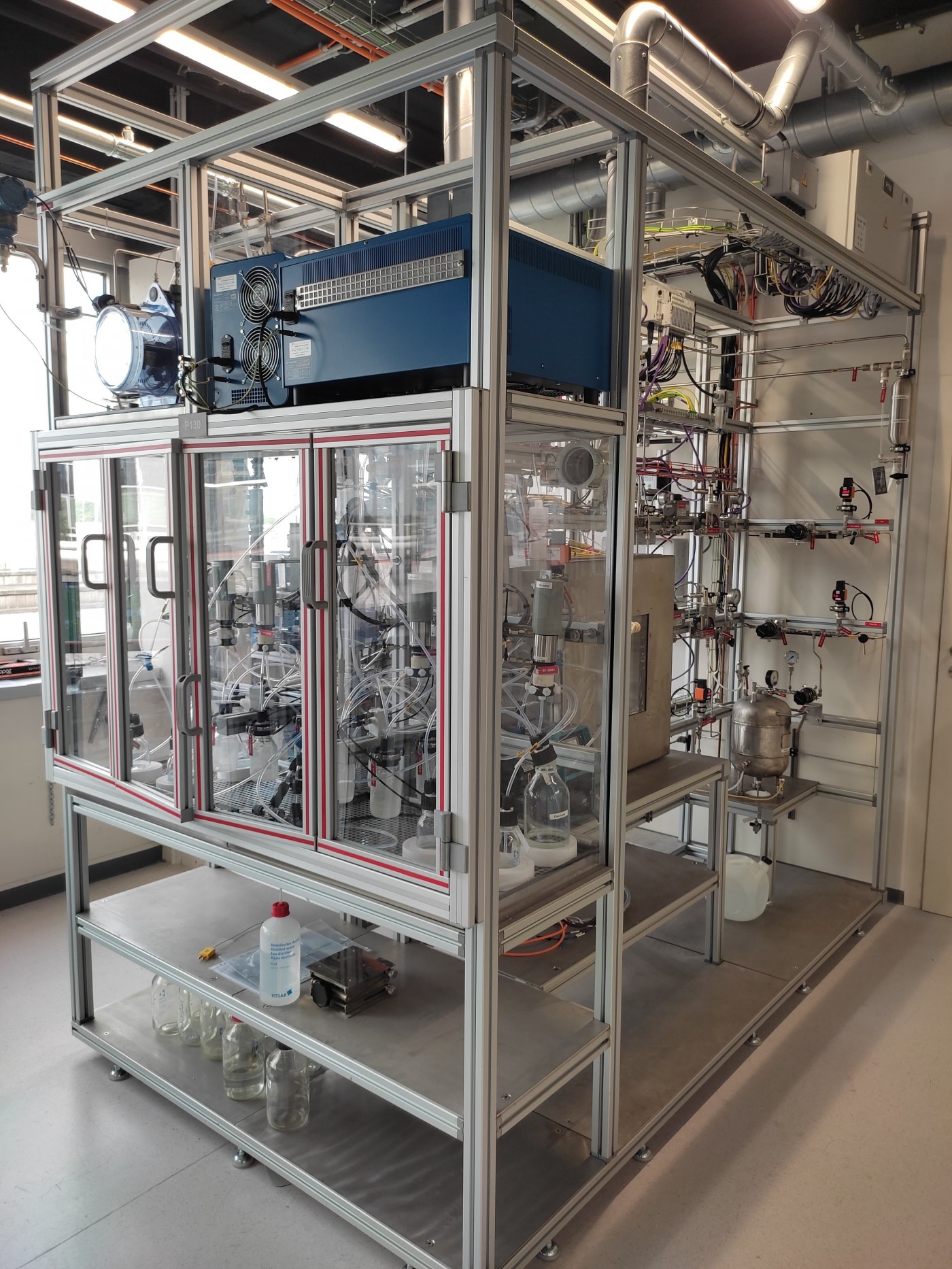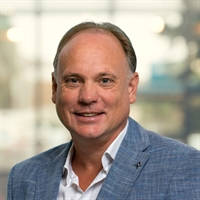

Opportunities and challenges of co2 conversion to produce sustainable building blocks and products
12-03-2023 | Community
ACCELERATING INNOVATION TOGETHER WHITIN THE VOLTACHEM COMMUNITY
 VoltaChem is a business-driven Shared Innovation Program that connects the electricity sector, equipment sector, and chemical industry, to accelerate industrial electrification. One topic being looked at is the conversion of carbon dioxide (CO2) into fuels and materials.
Raphaël Le Gall (R&D Team Manager for CO2 conversion at TotalEnergies) and Martijn de Graaff (Program Director VoltaChem) discuss the importance of innovating together and testing opportunities in pilot projects.
VoltaChem is a business-driven Shared Innovation Program that connects the electricity sector, equipment sector, and chemical industry, to accelerate industrial electrification. One topic being looked at is the conversion of carbon dioxide (CO2) into fuels and materials.
Raphaël Le Gall (R&D Team Manager for CO2 conversion at TotalEnergies) and Martijn de Graaff (Program Director VoltaChem) discuss the importance of innovating together and testing opportunities in pilot projects.
A future-proof chemical industry requires collaborative, sustainable innovation. To achieve the climate goals, it’s important to help the chemical industry reduce its CO2 emissions by converting electricity (from wind and solar), CO2, and bio-based raw materials into commodities and products. Using captured CO2 as feedstock, instead of fossil raw materials, for existing and new production processes is one of the possible routes towards making industry more sustainable.
USING CO2 AS A RAW MATERIAL?
Martijn: ‘We currently obtain carbon (C), which is present in fuels, materials, and food, from fossil raw materials. To achieve climate-neutral industry and a circular economy, we will have to get that carbon from somewhere else. The reuse of CO2 emitted by industry is an interesting source, in addition to waste (including plastic waste) and biomass, for example. In the future, it may also be possible to extract CO2 from the air.’
IN WHAT WAYS IS TOTALENERGIES WORKING ON C02 CONVERSION?
Raphael: ‘At TotalEnergies, we work with a team on CO2 conversion, converting CO2 into useful building blocks and products. We see CO2 as a new feedstock for our process, to make synthetic fuels for aircraft and ships. However, there is still work to be done on this, so we’re looking at various technological routes in different projects (including demonstration projects). In Germany, for example, we are investigating the production of methanol from CO2 and hydrogen (H2) produced through the use of renewable energy. ” TotalEnergies is also working with VoltaChem on various projects.’ Such as investigating the feasibility of SOE technology, on industrial scale. Within this project the aim is to make an overview on the technology challenges towards the industrial applicable scale SOE technology, with a look to cell and stack performance like costs, productivity, and lifetime. Furthermore we investigate optimum size SOE cell and stack technology.
IS THERE A SILVER BULLET FOR CO2 CONVERSION?
Raphael: ‘A lot of energy – preferably renewable energy – is needed to convert CO2 into building blocks for products such as sustainable aviation fuel or plastics, because CO2 is a low-energy molecule. To go from CO2 to fuel, you want to use renewable energy, of course. For now, however, we are faced with limited availability of renewable energy. That scarcity makes for a high price.
It is therefore important to make the conversion of CO2 as efficient as possible. Various innovations are needed to make that happen. There are several possibilities and technologies that could contribute but need further development. Since we don’t know in advance which technological ‘bricks’ will be used in the future, it’s important to explore different routes. Of course, we’ll eventually have to choose various routes and products, but for now, the most important thing is to get to work developing such technologies.’
Martijn: ‘There isn’t yet complete clarity regarding legislation and regulations. Once that has been achieved, business cases and hard choices can be made. We’re dependent on regulations and technological readiness. We have to strike a balance between the two and, of course, the availability of renewable energy and raw materials. In terms of the Technology Readiness Level (TRL), thermocatalysis leads the way, followed by electrochemical and plasma technology. We don’t have a silver bullet, so we’ll have to create opportunities and see what fits best. We simply do not know what the transition of the industry will look like. Let’s make a start, try things out, and then we’ll see as we go along. All options should be considered. In VoltaChem, we focus on the electrification options, but other options should also be investigated.’
HOW DOES THE VOLTACHEM BUSINESS COMMUNITY ACCELERATE INNOVATION?
Martijn: ‘It’s a challenge to oversee everything, understand the different options, and know where they can play a role, what impact they will have, including on each other, as well as what, where, and when the right choice will be. That’s why it’s important to work in what are called business communities. It’s great that TotalEnergies and other partners of VoltaChem are taking a broad look at opportunities for the future. When we started VoltaChem 7 years ago, as a research programme into electrification, there were quite a few question marks. It’s good to note that progress has been made in recent years, and more and more projects are starting to take off. There are many interested parties and an increasing number of players, such as chemical companies, suppliers, and knowledge organisations, that are linking up. For example, TotalEnergies has been a partner for 6 years and it is one of the more active players in the business community and individual projects. Bringing different sectors together can be difficult, given their different backgrounds and objectives. On the other hand, all stakeholders recognise that everyone will benefit if innovations in electrification gain momentum.’
Raphael: ‘It’s very interesting for us to work with the VoltaChem community. We can ask specific research questions and we are connected with other industry partners working on the same kind of issues.’
JOIN VOLTACHEM
The VoltaChem Community aims to bring together stakeholders from relevant sectors, like chemicals, energy, equipment industry and service providers in an exclusive forum. The goal of the community platform is to develop and maintain a multi-year high-level roadmap for implementation of electrification and decarbonization in the industry and society as a whole. And to work on specific high-level non-technical projects that are needed for implementation of the roadmap. All partners that participate in the various technology development programs in the potential of electrification are united. Together, the future of electrification, road mapping, and (inter)national agenda-setting are discussed. VoltaChem invites companies in the process industry, electricity sector, and equipment sector to join the VoltaChem's Community. For more information go to our community page.
Image: facility used in CO2 conversion at TotalEnergies
Share this page:
